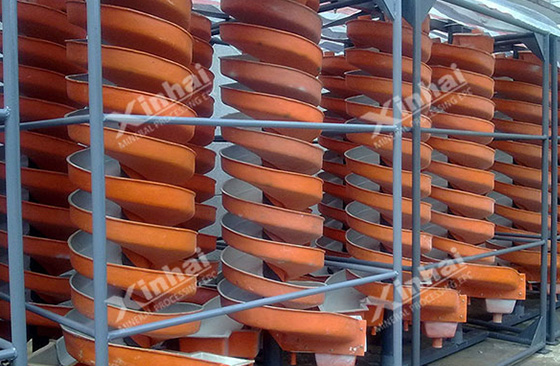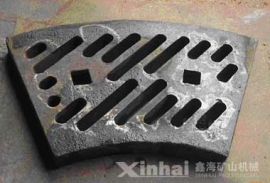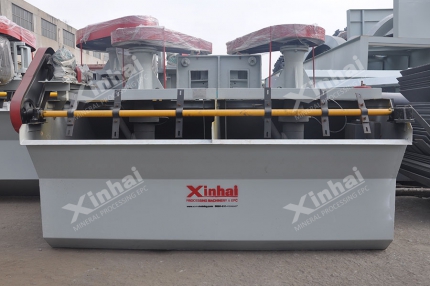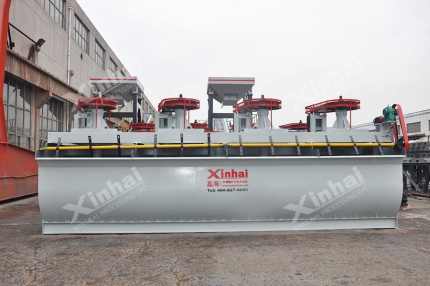Hematite is a weakly magnetic mineral and can be processed using a variety of beneficiation processes, such as gravity separation, flotation, strong magnetic separation, roasting magnetic separation, etc. However, different types of hematite require different ore beneficiation methods. The following will introduce you to several hematite beneficiation methods.
Use the table of contents below to navigate through the guide:
01Single hematite ore processing technology
Single type hematite includes hematite, siderite, limonite, etc. from sedimentary metamorphic, sedimentary, hydrothermal and weathered deposits. There are two main beneficiation methods commonly used for this kind of ore: magnetization roasting magnetic separation and gravity separation-flotation-strong magnetic separation combined beneficiation method.
.jpg)
(Magnetic separation process)
Magnetization roasting magnetic separation method: mainly suitable for the separation of fine-grained or particulate hematite. If the mineral composition is complex and other mineral processing methods cannot effectively recover the concentrate, magnetization roasting and magnetic separation process can be used. Different sizes of ores use different roasting equipment. When the ore size is between 0-20mm, rotary circuit magnetization roasting can be used. If the ore size is between 20mm-75mm, the shaft furnace reduction roasting process can be used.
Gravity separation-flotation-strong magnetic separation and its combined mineral separation method: The flotation method is suitable for processing fine-grained to micro-grained hematite ore, and can be divided into forward flotation and reverse flotation. Gravity separation and strong magnetic separation are mainly used to process coarse and medium-grained hematite ores. Heavy media beneficiation or jig beneficiation is used to process massive and coarse-grained ores, and gravity separation methods such as spiral concentrators, shaking tables and centrifugal concentrators are used to process medium- and fine-grained ores. Combined beneficiation processes such as gravity separation, strong magnetic separation, and flotation are used to process hydrothermal quartz hematite and hematite-limonite ore.

(flotation process)
02Polymetallic hematite ore processing technology
Hydrothermal and sedimentary phosphorus- or sulfide-containing hematite and siderite are polymetallic iron ores. When processing such ores, gravity separation, flotation, strong magnetic separation or other combined processes can be used to recover the iron concentrate, and flotation is used to recover phosphorus or sulfide. Hydrothermal apatite-containing hematite and sulfur- and copper-containing siderite are recovered by flotation. When the ore is sedimentary phosphorus-containing oolitic hematite ore, flotation can be used to separate phosphorus and iron minerals. However, it is often difficult to enrich phosphate concentrate using this method, and it also reduces the iron recovery rate. Sedimentary phosphorus-containing oolitic hematite can be pre-selected using gravity separation or magnetic separation to remove large particles of surrounding rock and inclusions, and then fully sintered into the furnace for smelting.
03Magnet-hematite mixed ore processing technology
This type of ore can be divided into two categories: single magnet-hematite ore and multi-metallic magnet-hematite ore.

(gravity process)
Single magnet-hematite ore: Sedimentary metamorphic magnetite and magnet-siderite ore belong to this type of ore, and there are two main beneficiation methods. ①Weak magnetic separation combined with gravity separation, flotation and strong magnetic separation process: Weak magnetic separation recovers the magnetite in the ore, and then gravity separation, flotation or strong magnetic separation recovers the weak magnetic iron minerals in the ore. ② Magnetization roasting and magnetic separation method combined with other mineral separation processes: similar to the magnetization roasting and magnetic separation process of a single hematite ore. When other beneficiation processes in this process are combined in parallel, the iron ore fines are processed by weak magnetic separation combined with other beneficiation methods.
Polymetallic magnet-hematite ore: skarn-type mixed iron ore containing sulfide and hydrothermal type mixed iron ore containing phosphorus, sulfur or rare earth belong to this type of ore. Their composition is relatively complex and weak magnetic separation Combined processes with other beneficiation methods can be used to process such ores. The weak magnetic separation process is used to recover magnetite, and then gravity separation, flotation or strong magnetic separation are used to recover weak magnetic hematite minerals, and flotation can recover the associated components. If the iron minerals in the mixed iron ore containing rare earths are mainly hematite, the reduction roasting magnetic separation-flotation process can be used.

(Magnetic separation process)
The above content is a brief introduction to the three hematite ore processing methods. It can be seen from the above that when the components of hematite are different, the selected mineral processing methods are also different. Therefore, when processing hematite ore, it is necessary to conduct ore composition analysis and mineral processing test analysis. Based on the results, we can formulate reasonable mineral processing methods and configure mineral processing equipment to improve the recovery rate of ore concentrate and the ore utilization rate.


 marketing@ytxinhai.com
marketing@ytxinhai.com  0086 13810327080
0086 13810327080 






































































































 CHAT
CHAT MESSAGE
MESSAGE.jpg)






